Research
Bringing about positive changes for all people affected by dementia mate wareware is at the heart of what we do. One of the ways we do this is through research and reports.
-
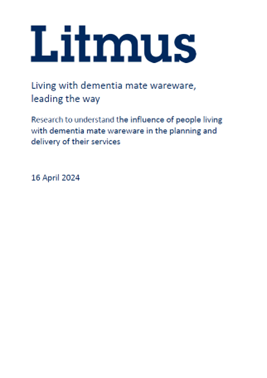
Research into the lived experience of New Zealanders affected by dementia mate wareware highlights the stigma they face, the problems they experience getting a diagnosis and the negative impact of the inequitable access to support services.
The two reports were initiated by questions from the Alzheimers NZ Lived Experience Advisory Group.
-
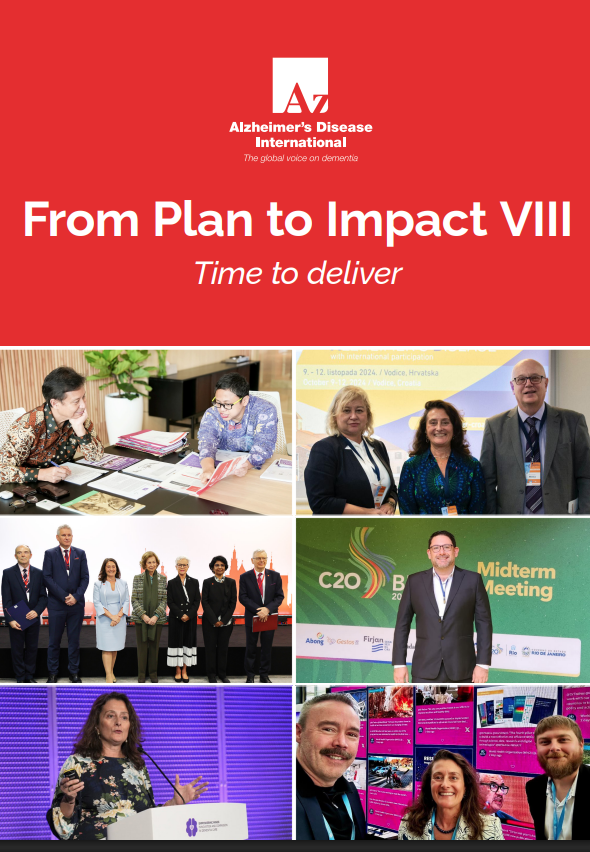
From Plan to Impact VIII
From Alzheimer's Disease International
ADI has released its annual report on the global progress implementing the Global Action Plan on the Public Health Response to Dementia.
The report highlights the size and scale of the dementia challenge and that timing is fast running out for countries to avoid the worst impacts of the rapidly growing numbers of people. It also highlights that Aotearoa New Zealand continues to fall behind.
-
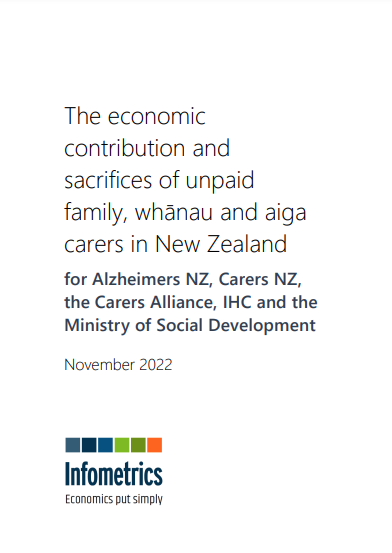
The economic contribution and sacrifices of unpaid family, whānau and aiga carers in New Zealand
This report was prepared by the alliance with the Carers Alliance, Alzheimers NZ, Carers NZ, IHC and the Ministry of Social Development.
The report estimates there are 432,000 carers in the country (although the true number could be up to 50 percent higher) and two-thirds of carers are women.
Each year, The annual economic contribution of caring in Aotearoa New Zealand is $17.6 billion or 5.4 per cent of GDP.
On average, household incomes with carers are 10 percent less than those of non-carers.
-
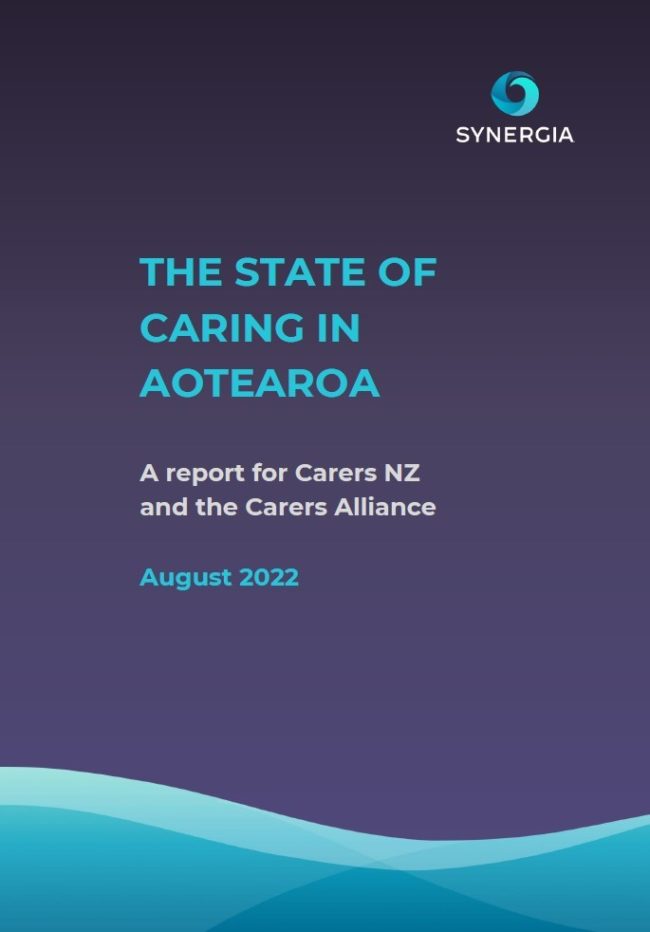
The State of Caring in Aotearoa
A report for Carers NZ and the Carers Alliance
This report summarises the findings from both the State of Caring and Respite and Time Out surveys undertaken by Carers NZ and the Carers Alliance in 2021. Over 1,600 carers responded to the surveys, confirming that they are doing it tough, they feel unsupported by the system, and struggle to get the help they need.
As a result, carers health is poor, with high levels of anxiety and depression, and they are isolated. The realities of caring mean they struggle to work as well, suffer financial impacts as a result and struggle to save for their retirement.
Alzheimers NZ, along with IHC, and the Ministry of Social Development, partnered with Carers NZ and the Carers Alliance to fund this report.
-
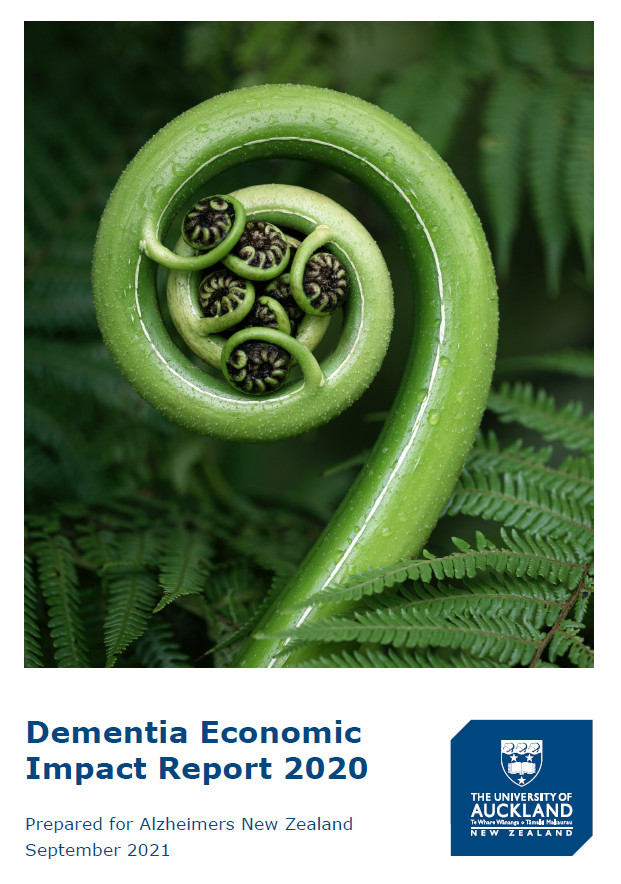
Dementia Economic Impact Report
2020
This report, compiled by the University of Auckland, estimates prevalence numbers and shows care partners of people living with dementia provide nearly 53 million hours per year of unpaid care, valued at $1.19 billion.
-

Evaluation of services for people living with dementia
Provided by four local Alzheimers organisations
This new research commissioned by Alzheimers NZ has found dementia support services provided by local Alzheimers organisations meet the needs of people living with dementia and enable them to live their best possible lives. However, the research also found the lack of government funding restricted the scope and availability of dementia services.
-
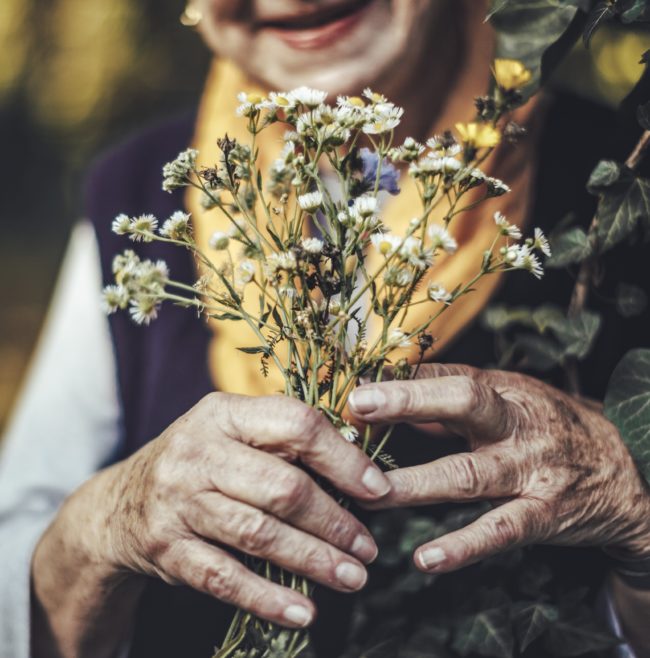
This is our story
A qualitative research report on living with dementia
This report tells the story of the diverse lives and experiences of 49 New Zealanders living with dementia and explores what it means to them to live well with dementia. Alzheimers NZ commissioned this report with Litmus to share these experiences – with other people living with dementia, for those supporting people with dementia, and with decision-makers.
-
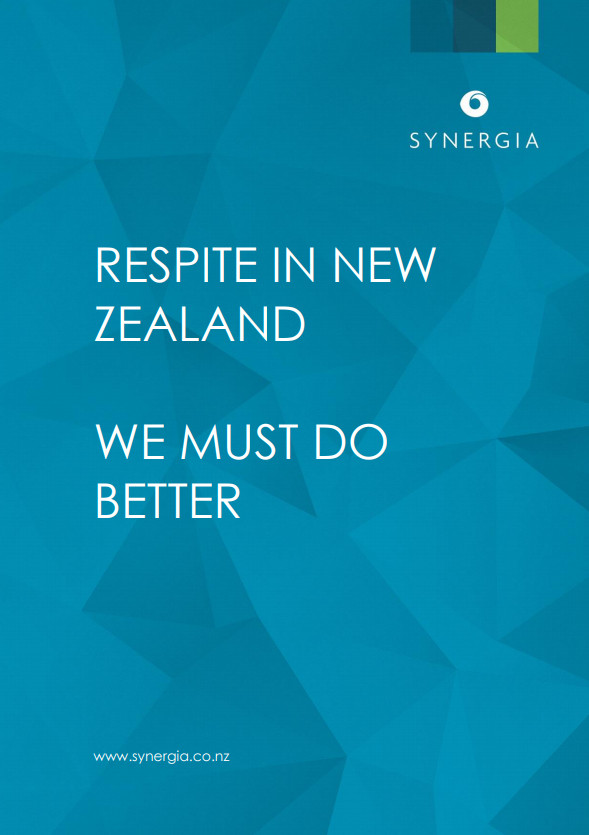
Report - We must do better
Respite in New Zealand
In the 2013 census, 430,000 New Zealanders, 10 percent of the population, identified as carers, looking after approximately 1.1 million New Zealanders living with disabilities. New Zealand’s respite care system is in crisis and needs urgent attention. This report, prepared by the New Zealand Carers Alliance in association with Alzheimers NZ and IHC, documents the significant problems facing the respite system, many parts of which are broken and need fixing. The report outlines eight steps government must take to address those problems, including three priority areas that require immediate action.
-
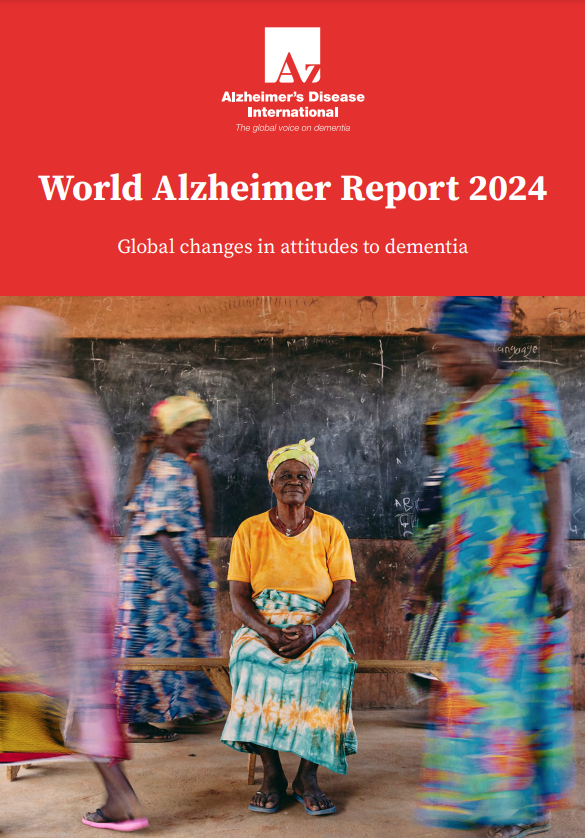
World Alzheimer Reports
From Alzheimer's Disease International
Alzheimers NZ is a member of Alzheimer’s Disease
International (ADI), the federation of Alzheimer’s organisations worldwide. Every year ADI releases a World Alzheimer Report. Alongside this, ADI also produce a number of reports on a range of different topics.- World Alzheimer Report 2013 - Journey of caring
- World Alzheimer Report 2014 - Risk reduction
- World Alzheimer Report 2015 - Global impact of dementia
- World Alzheimer Report 2016 - Improving healthcare
- World Alzheimer Report 2018 - Dementia research
- World Alzheimer Report 2019 - Attitudes to dementia
- World Alzheimer Report 2020 - Dementia design
- World Alzheimer Report 2021 - Journey of diagnosis
- World Alzheimer Report 2022 - Life after diagnosis
- World Alzheimer Report 2023 - Reducing dementia risk
- World Alzheimer Report 2024 - Global changes in attitudes to dementia
-
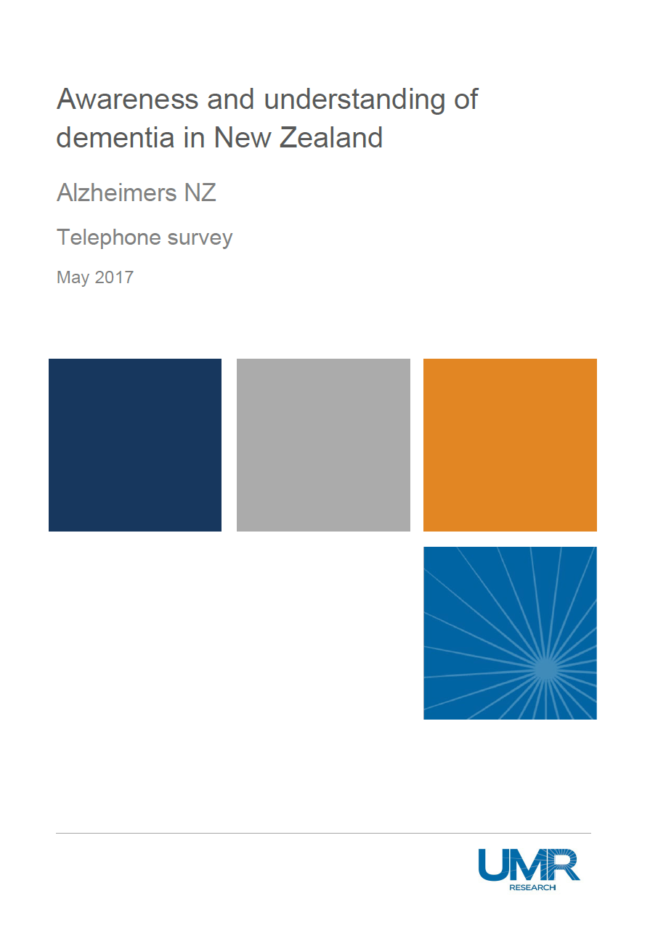
Awareness and understanding of dementia
These reports highlight awareness and understanding of Alzheimers and dementia in Aotearoa. The latest report shows a majority of people know or have known someone with dementia.
Other reports
-
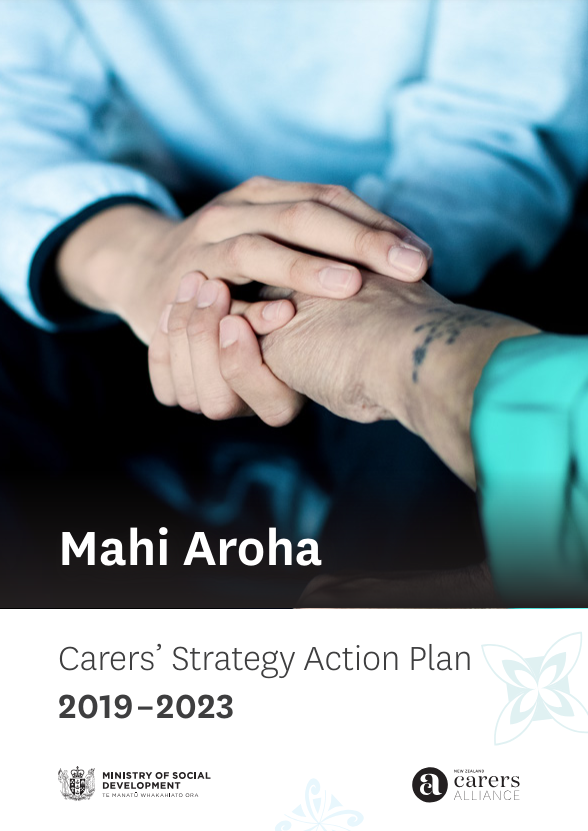
Mahi Aroha – Carers’ Strategy Action Plan
2019–2023
The Carers’ Strategy Action Plan 2019–2023 includes a range of actions to improve the wellbeing of the one in 10 New Zealanders who care for a loved one with a disability, health condition, illness or injury. The Plan includes a new focus on target populations (Māori, Pacific, young and older carers) and a family, whānau, aiga-centred approach will form part of the implementation approach.
-

Valuing the advocacy of people with dementia
Dementia Alliance International
This report highlights why the voices and experiences of people living with dementia must be a critical component within the policy making process, and provides some great examples of what that looks like in practice. This includes how our Advisory Group here in New Zealand has strengthened the work we do. We are strongly supportive of DAI’s work over the years to bring the voice of people living with dementia to policy making around the world.
-
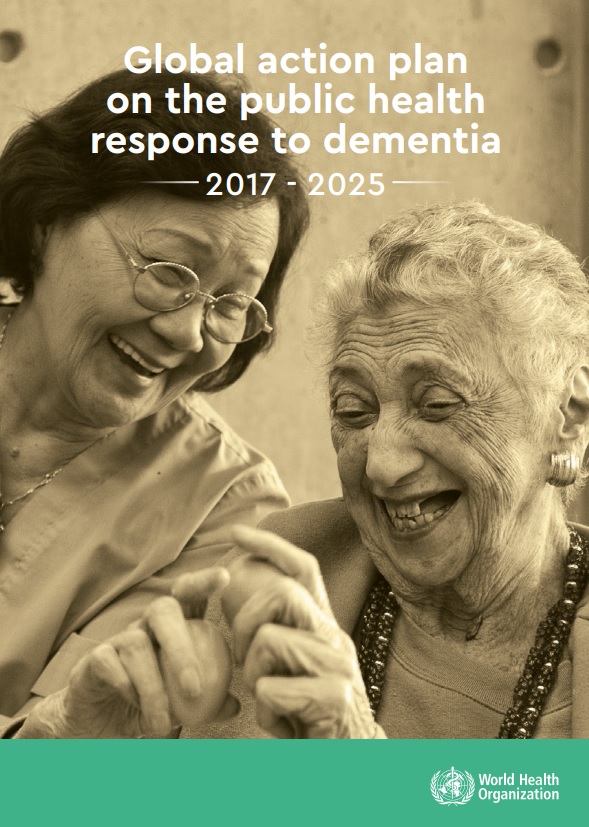
World Health Organization (WHO)
Global action plan on the public health response to dementia 2017-2025
The Global action plan on the public health response to dementia 2017-2025 was adopted by WHO Member States at the 70th World Health Assembly. The global plan provides a comprehensive blueprint for action and sets targets across seven areas.
In May 2019, on the second anniversary of WHO’s adoption of Global action plan, ADI updated their report, From plan to impact, on the progress. In the last two years only two countries have created national dementia plans or frameworks, meaning at the current rate the 2025 target will not be reached.
-
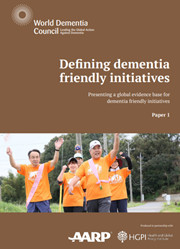
World Dementia Council
Dementia friendly initiatives
These two report from the World Dementia Council examine the global evidence base for dementia friendly initiatives. Dementia friendly is a concept that has developed into a worldwide “movement” with a many initiatives happening across the globe.
-
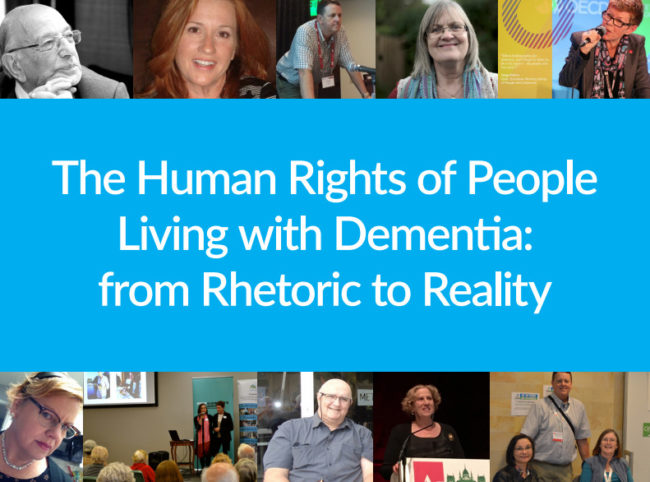
Dementia Alliance International
Human Rights for people with dementia
Dementia Alliance International (DAI) is an advocacy group, the peak body and global voice of people with dementia. Read the report The Human Rights of People Living with Dementia: from Rhetoric to Reality.

